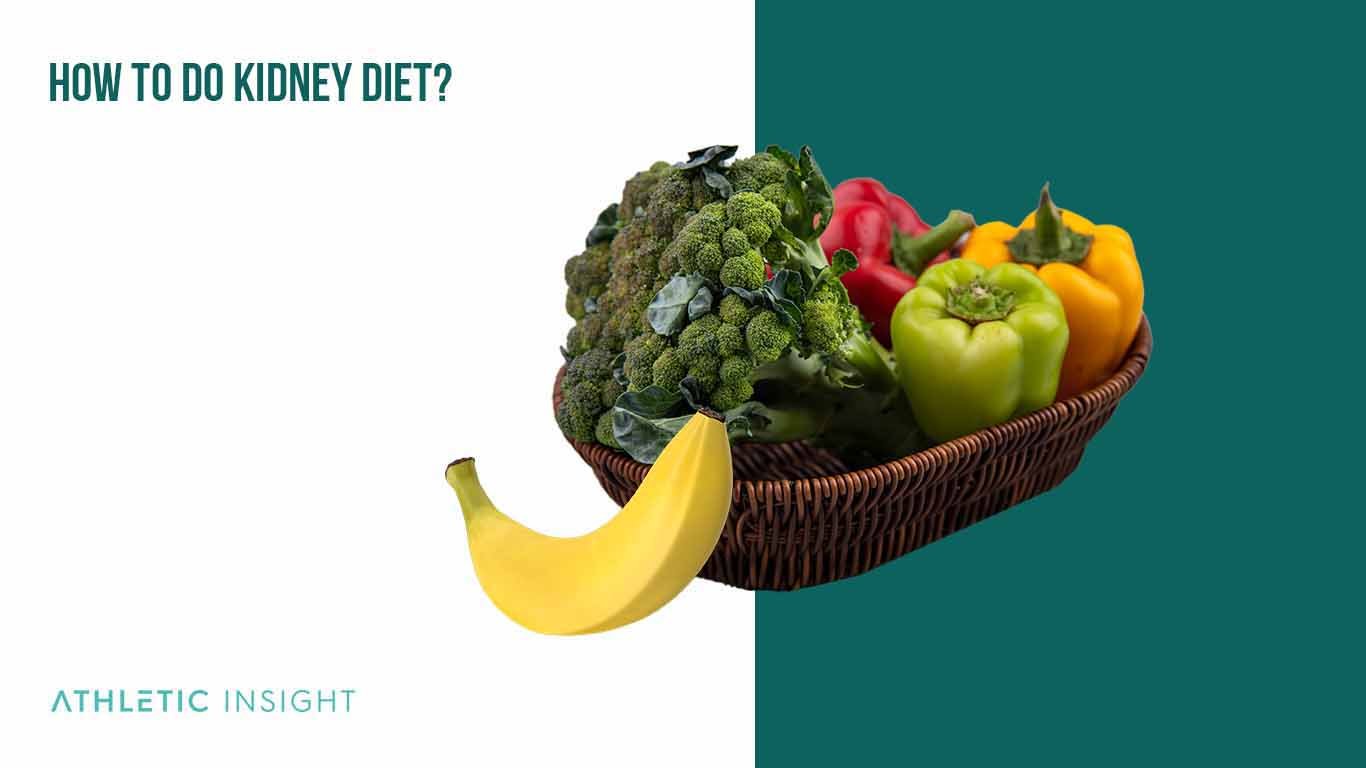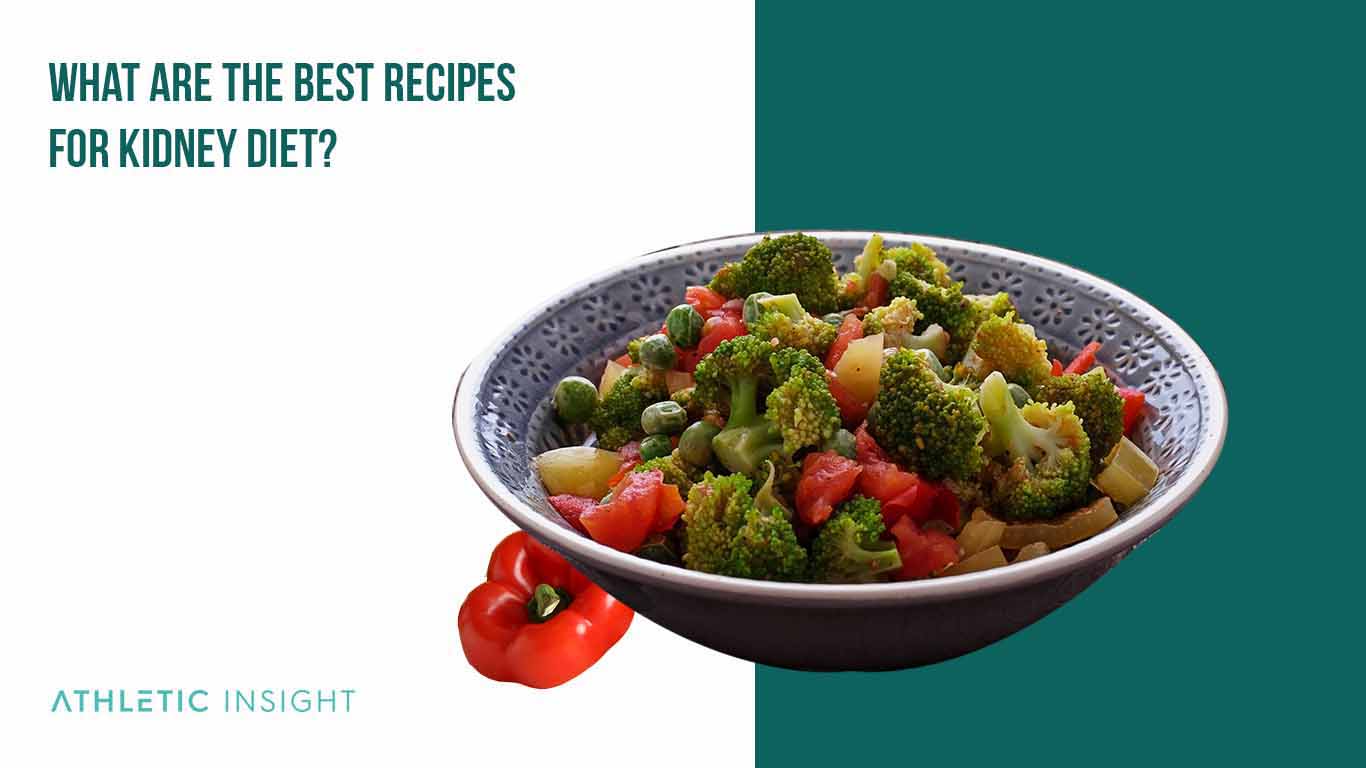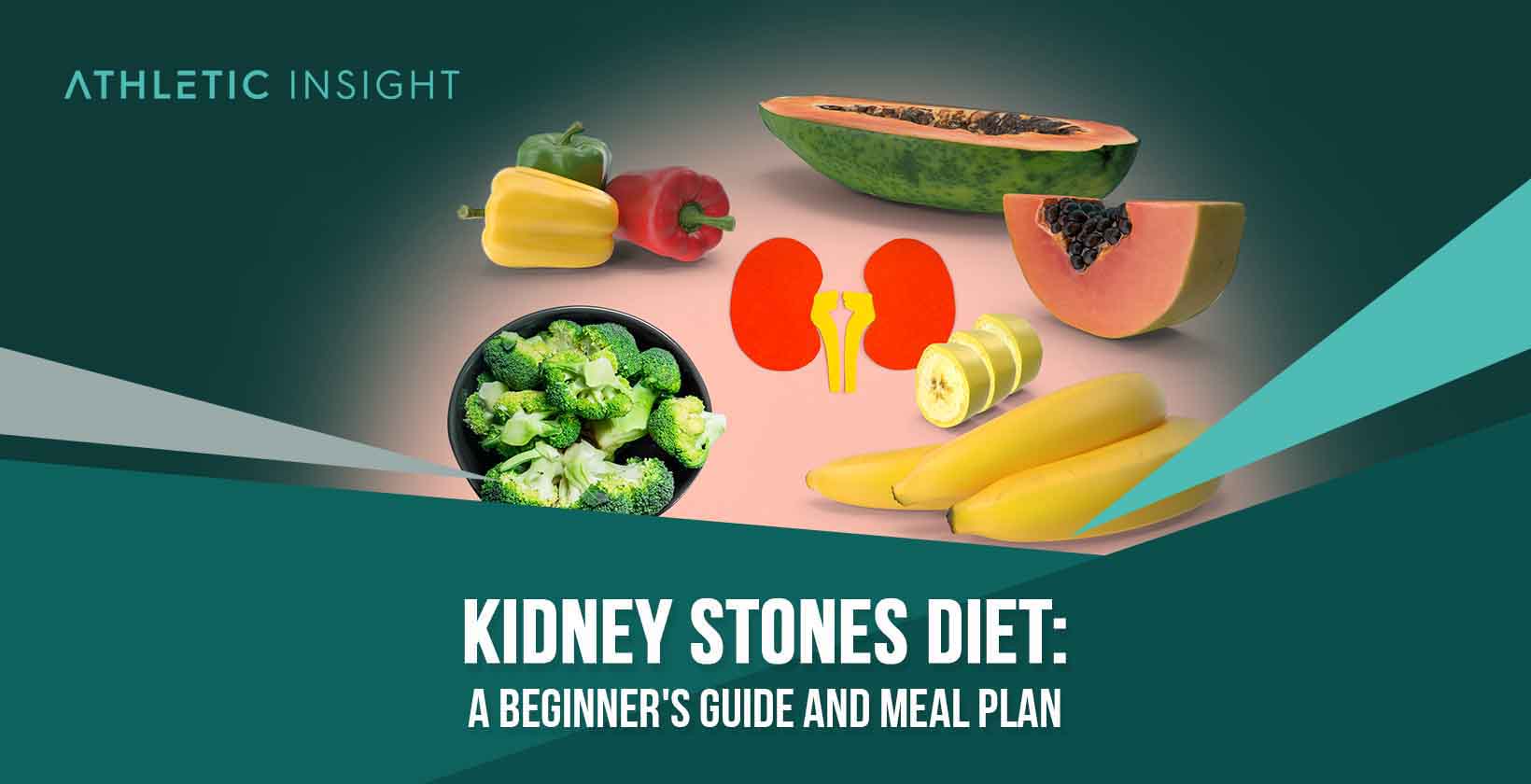Kidney stones are common, painful, and can be a significant source of discomfort. Kidney stones occur when minerals, such as calcium and oxalate, accumulate in the urine and form crystals. These hard deposits can cause intense pain when they pass through the urinary tract.
There are several ways you can solve this common medical problem such as by following a kidney stones diet which is an effective way to reduce the risk of developing kidney stones. While there are many other diet plans that one can follow, the kidney stone diet is specifically created to help with kidney stones.
The risk factors for kidney stones vary from person to person but include dietary habits like high sodium intake and not drinking enough water. The kidney stones diet reduces these risk factors and decreases the likelihood of developing kidney stones.

Reduces Cancer
Improved Heart Health
Promotes Bone Growth
Foods high in oxalates include spinach, rhubarb, beet greens, strawberries, and chocolate. High-sodium foods include processed foods, canned soups and vegetables, and fast food. Foods high in calcium include dairy products like milk, cheese, yogurt, and ice cream.
The kidney diet or kidney disease diet is adequate for reducing the formation of crystals in your urine and reducing the risk of developing kidney stones. However, talking with your healthcare provider before making significant changes to your diet or lifestyle is essential.
This article is your comprehensive guide to understanding and implementing a kidney stones diet. It will discuss scientific evidence regarding the effectiveness of this diet and provide you with a meal plan to get started. By the end of the article, you will have all the information you need to decide if the kidney diet is the right choice for your dietary needs.
How Does Kidney Diet Work?
The kidney stones diet focuses on reducing oxalates, sodium, and other minerals from your diet. Removing these minerals from your diet can reduce the formation of crystals in your urine and prevent kidney stones from forming. Eating more dietary fiber from fruits and vegetables, limiting animal proteins, and avoiding processed foods is what doctors and dieticians recommend.
This diet also encourages the intake of other healthy lifestyle practices such as exercising regularly, managing stress, and getting enough sleep. These habits can help reduce the risk of kidney stone formation as well.
By limiting the minerals in your diet, staying hydrated, and avoiding processed foods, your kidneys can process and pass the crystals and stop them from forming. Over time, the crystals will stop developing, and you can urinate without pain. This diet is not an immediate fix since you need to give your kidneys time to work.
When starting this diet, monitoring your kidney stone levels and adjusting as needed is crucial. You will not notice any immediate effects, but you should see the pain from kidney stones decreasing within a week. Since the diet is not highly restrictive, your body will not respond negatively to it in any way.
Depending on the severity of your kidney stones, this diet can solve your kidney stone problem anywhere from three weeks to two months. Additionally, following this diet, in the long run, will prevent you from developing kidney stones and maintaining a healthy diet and nutrition.
Several studies have found that the kidney stones diet effectively reduces the risk of kidney stone formation. A review published in 2019 concluded that dietary interventions significantly reduce kidney stones and improve overall health outcomes.
What Are the Health Benefits of a Kidney Diet?
There are several health benefits of the kidney diet such as reducing kidney stone symptoms, improving heart health, reducing cancer risks, preventing type 2 diabetes, lowering blood pressure, decreasing asthma symptoms and promoting bone health.

- Reduce kidney stone symptoms: The primary benefit of this diet is that it can reduce the symptoms associated with kidney stones. Reducing the minerals in your urine can reduce the number of crystals and stop kidney stones from forming.
- Good for heart health: Studies have found that following a kidney diet can reduce blood pressure and improve overall heart health. This benefit is likely because this diet recommends limiting sodium and increasing water intake.
- Reduces cancer risk: Studies have also found that this diet can reduce the risk of certain cancers, including kidney and bladder cancer.
- Prevents type 2 diabetes: The kidney diet helps control blood sugar levels and prevent type 2 diabetes because this diet recommends eating fewer processed foods.
- Lowers blood pressure: This diet can also reduce blood pressure levels because it recommends eating more fresh fruits and vegetables, which are rich in potassium.
- Decreases asthma symptoms: Eating fewer processed foods, eating more fiber, and increasing water intake can help reduce asthma symptoms.
- Promotes bone health: Following a kidney, diet can increase your vitamin D intake, which is essential for healthy bones. The Kidney diet for weight loss is also effective, and weight loss can help improve bone strength.
What Are the Health Risks of a Kidney Diet?
Despite its benefits, there are several health risks from following the kidney diet. Following this diet can lead to protein deficiency because it recommends limiting animal proteins, which can lead to reduced muscle mass, fatigue, and hair loss.
Following the kidney diet could lead to calcium deficiency because it recommends limiting dairy products. Over time, this can lead to weakened bones and teeth.
It is essential to consult a doctor or nutritionist before making any drastic changes to your diet. Your healthcare professional can also monitor your kidney stone levels and adjust your diet accordingly.
How to Do a Kidney Diet?
The key to following a kidney diet is getting the balance of minerals and vitamins right. While on this diet, there are no calorie restrictions, so you should follow the FDA recommendations of 1800-2500 calories per day, depending on your body type.

You should follow the kidney stone diet for as long as you need to alleviate the symptoms of kidney stones. If Kidney stones are a recurring problem for you, you may need to follow this diet for the rest of your life.You can accomplish this by completing the following steps.
- Increase water intake: Water is essential for flushing out toxins and helping the body function properly.
- Limit animal proteins: Try to limit your intake of red meat, poultry, and fish. Instead, opt for plant-based proteins like beans, nuts, and tofu.
- Eat fewer processed foods: Processed foods are high in sodium and can contribute to kidney stone formation.
- Increase your intake of fresh fruits and vegetables: These are rich in vitamins and minerals that can help reduce kidney stones.
- Limit dairy products: Dairy products are high in calcium and can increase the risk of kidney stone formation.
- Increase vitamin D intake: Vitamin D is essential for healthy bones and helps reduce kidney stone formation.
- Stay consistent: It is essential to be compatible with this diet and stick with it long-term.
There are some best practices you should follow when implementing this diet such as consuming more fresh fruits and vegetables while avoiding processed foods, increasing your water intake and limiting animal proteins, and consulting your doctor or nutritionist for guidance and a personalized meal plan.
What Are the Foods that You Can Eat While on a Kidney Diet?
Even though this diet is restrictive, there is a wide range of foods that you can still eat while on this diet. These foods are important because you can still get the essential vitamins and minerals your body needs while reducing the crystal formation in your kidneys.
- Vegetables: kale, spinach, broccoli, cauliflower
- Fruits: apples, oranges, grapefruit
- Beverages: water, lemonade diet
- Whole Grains: oats, quinoa
- Low-fat Dairy Products: skim milk, low-fat yogurt
- Non-animal Proteins: beans, tofu
- Healthy Fats: olive oil, avocado
In addition to these foods, you should be drinking plenty of water and various liquids. One liquid based diet that may also help with the kidney diet is the lemonade diet. These beverages can be used to help follow a kidney diet.

Reduces Cancer
Improved Heart Health
Promotes Bone Growth
What Are the Foods that You Should Avoid While on a Kidney Diet?
It is essential to avoid foods that contribute to crystal formation in your kidneys.
- Meat: steak and pork
- Poultry: chicken and turkey
- Fish and shellfish:
- Meat-based ingredients: deli meat, sausage
- Eggs:
- Dairy products: full-fat dairy products like sour cream and whole milk
In addition to these foods, you should avoid high oxalate foods like chocolate, nuts, spinach, and rhubarb. Finally, you should avoid salty foods such as chips and processed snacks. All of these foods contribute to crystal formation in your urine.
Who Should Do the Kidney Diet?
This diet is for anyone with kidney stones or at risk of forming them. It is particularly beneficial for people with high amounts of crystals in their urine or recurrent kidney stone formation.
The kidney diet is also for people with chronic kidney disease or anyone looking to reduce the risk of kidney stones. This diet can help you maintain a healthy balance of minerals and vitamins necessary to prevent kidney stones.
This diet is also great if you are diabetic or in bodybuilding. The kidney bodybuilding diet is highly effective at reducing your body’s fat mass and helping you reach your fitness goals.
What Are the Best Recipes for a Kidney Diet?
There are many great recipes for kidney diets. While these are some of the most popular and highly rated, you should continuously be trying new recipes and switching up your routine. The key to sticking with a diet is making it a lifestyle change, if you get bored of the meals, you’ll find yourself making poor meal decisions.

- Chicken meatballs and Couscous: Despite including chicken, this dish is low in oxalate and filling.
- Chili Mac: Chili mac is full of fiber, low in sodium, and full of nutrients.
- Spring mix Strawberry Salad: This salad is the perfect way to get low-oxalate vegetables.
- Strawberry and Mint Smoothie: This smoothie is a great way to have low-fat dairy.
- Low-carb Turkey Roll-up: Removing the bread is a great way to make this kidney stone-friendly dish.
What Is a Sample Kidney Diet Plan?
This kidney diet plan can help you plan out your meals for an entire week. If you stick to the recommended foods, you can substitute items within these meal plans to give yourself a change.
- Monday
- Breakfast: lemon water and vegetable poha
- Lunch: green tea, apples, and white rice with dal
- Dinner: makhana chaat with cooked vegetables
- Tuesday
- Breakfast: Kidney stone-safe energy balls
- Lunch: Chicken meatballs and couscous
- Dinner: Chili mac
- Wednesday
- Breakfast: Strawberry and mint smoothie
- Lunch: Strawberry summer salad
- Dinner: No oxalate mashed potatoes with broccoli rice
- Thursday
- Breakfast: Egg and goat cheese breakfast wrap
- Lunch: Low-carb turkey roll-up
- Dinner: Low-carb cauliflower pizza
- Friday
- Breakfast: fresh fruit and low-fat yogurt
- Lunch: Southern burrito bowl
- Dinner: Lettuce wrap turkey burger
- Saturday
- Breakfast: Harvest Bowl
- Lunch: Low-sodium chicken soup
- Dinner: Portobello mushroom veggie wrap
- Sunday
- Breakfast: Low oxalate granola
- Lunch: Low-carb Italian chili
- Dinner: Alfredo chickpea pasta
What Are the Facts About Kidney Diet?
There are some crucial facts that you should know about the kidney diet, including what happens in the first week of the kidney diet, how much it costs, how it compares to the Atkins diet, the weight loss potential, and the benefits.
- The first week: During the first week of the diet, you will notice a reduction in pain from urination.
- Cost: If you are cooking your meals, you can expect to spend around $100 per week on this diet.
- Kidney vs. Atkins Diet: The kidney diet is not as strict or high in protein as the Atkins diet, so it may be a better choice for those with sensitive digestive systems. The Atkins diet is a weight loss program, but the kidney stones diet is not.
- Weight loss: This diet is not designed for weight loss, but if you reduce the number of animal proteins and increase the water intake, you may lose some fat mass.
- Benefits: The primary use of this diet is reduced kidney stone formation and improved overall health. Additionally, it can help with weight management as well as energy levels.
Is Kidney Diet Considered a Healthy Diet?
Yes, the kidney diet is considered a healthy diet. It is low in sodium and animal proteins and high in fiber-rich vegetables, fruits, and whole grains. It also includes healthy fats such as olive oil and avocado.
Is Kidney Diet Expensive?
No, the kidney diet is not expensive because you can get all the necessary foods at your grocery store and don’t have to special order anything.

Reduces Cancer
Improved Heart Health
Promotes Bone Growth



